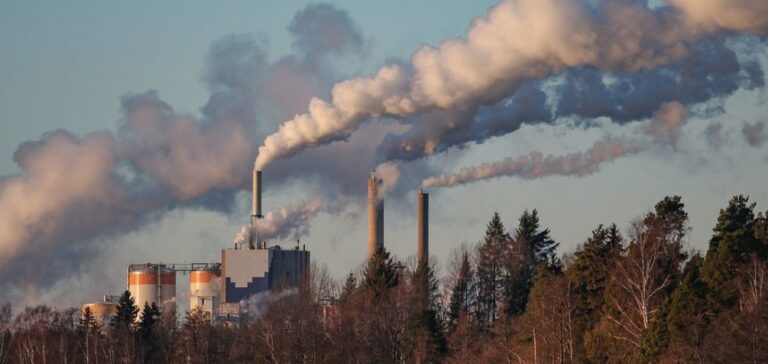The latest data from the Global Carbon Project (GCP) reveal that global methane emissions peaked at 400 million metric tons in 2020, mainly due to human activities such as agriculture, waste management and fossil fuel exploitation. This unprecedented level represents a rapid increase over the last five years, surpassing all previous periods.
This situation presents decision-makers with an urgent imperative: to develop concrete strategies to reduce these emissions and avoid major climatic and economic consequences.
Methane is a powerful greenhouse gas, with a global warming potential far greater than that of carbon dioxide (CO2) in the short term.
While the international community is increasingly focusing on decarbonization, efforts to manage methane emissions are still insufficient. Political decision-makers and players in the energy sector must now step up their actions to limit these emissions, as methane is responsible for around 30% of the global warming observed to date.
Origins and Contributions of the Various Sectors
The sources of methane emissions are diverse, but three main sectors dominate: natural environments (wetlands, lakes, rivers), agriculture and waste management, and the fossil fuel sector.
Ruminant farming, for example, remains one of the main contributors, generating a significant share of overall emissions.
Landfill sites, meanwhile, continue to emit large quantities of methane, despite attempts to capture and reuse the gas.
In the fossil fuel sector, emissions come mainly from extraction, transport and distribution.
Methane leaks during natural gas production and transport, as well as oil production, pose serious challenges.
Unintentional losses during these processes not only increase emissions, but also have economic implications for energy companies.
Although some companies are investing in emission reduction technologies, large-scale results remain limited and regulation remains fragmented across jurisdictions.
Monitoring Technologies and Reduction Strategies
In response to these challenges, advanced monitoring technologies are being deployed to identify and quantify methane emissions.
Satellites such as MethaneSAT and CarbonMapper can identify super-emitters and track variations in emissions in real time.
This precise data provides governments and businesses with the information they need to target interventions and improve the transparency of emissions reporting.
Such precision is crucial for implementing effective policies and monitoring national commitments to reduce greenhouse gases.
However, these technologies are not enough.
Increased international cooperation is essential to establish common standards and financial incentives for reducing methane emissions.
Political initiatives, such as the inclusion of methane in carbon pricing schemes or strict regulation of leakage in the gas industry, could reinforce current actions.
In addition, policies to invest in cleaner energy infrastructure and sustainable agricultural practices are also needed to achieve consistent decarbonization.
Economic impacts and the need for coordinated action
Managing methane emissions also has significant economic implications.
In addition to climate damage, uncontrolled methane emissions can entail substantial costs for the energy and agricultural sectors.
Losses of natural gas in the form of methane represent a direct economic loss for producers and consumers.
In addition, the impact on public health, linked to the air pollution associated with methane emissions, adds further pressure on public budgets.
To avoid worsening these impacts, public policy must focus on better management of methane sources.
Improving natural gas transport infrastructures, optimizing agricultural practices to reduce livestock emissions, and modernizing landfills to minimize gas leaks are priority avenues.
The revision of existing regulations and the harmonization of standards at international level are also necessary measures to reinforce the effectiveness of reduction actions.
As methane emissions continue to rise, time is running out for governments and companies to adopt ambitious strategies.
Reduction initiatives must combine technological innovation, rigorous policies and international collaboration to create a lasting impact.
In a world where climate and economic issues are increasingly interconnected, effective methane management is becoming not only an environmental issue, but also a strategic imperative for companies and governments alike.






















